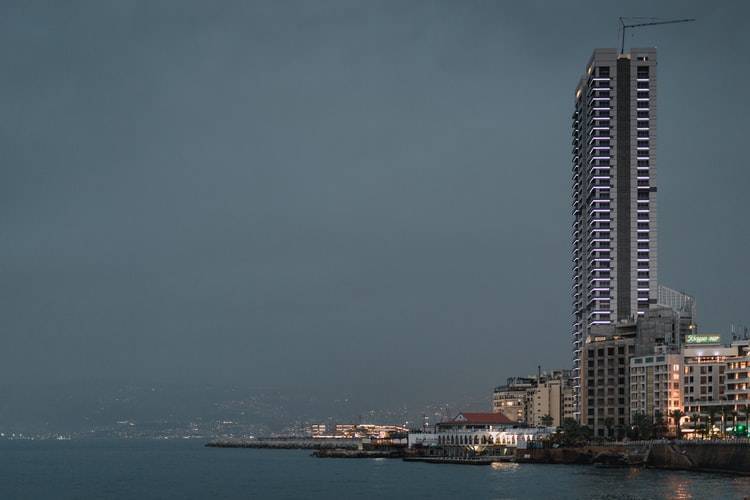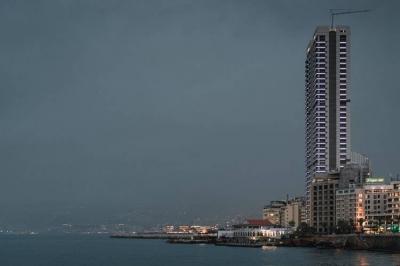The caretaker Prime Minister of Lebanon, Hassan Diab, has renewed his warning that his country and its people are "on the edge of catastrophe" and called on the international community to act for salvation. In a statement after a meeting with a group of ambassadors and representatives of diplomatic missions in Beirut, he said, "This government has no right to resume negotiations with the International Monetary Fund to implement the recovery plan that the government has set forth, as this imposes obligations on the upcoming government that it may not adopt."
He added, "Linking assistance to Lebanon with government formation poses a danger to the lives of Lebanese people and to the Lebanese entity, as the pressures and complete blockade imposed on Lebanon do not affect the corrupt, but make the Lebanese people alone pay a heavy price that threatens their lives and future, as well as threatens Lebanon as a model and message in the world." He said, "Lebanon and the Lebanese are on the edge of catastrophe."
No fundamental solutions for rescuing the country are in sight, and officials are engulfed in intense political disputes that have prevented the formation of a government for nearly 11 months following Diab's government resignation days after the port explosion. The international community requires the formation of a government to begin implementing urgent reforms in exchange for providing financial support to Lebanon. However, France, which is leading international pressure to form a new government, and the United Nations have organized two international conferences since September that provided urgent humanitarian aid for those affected by the explosion and civil society organizations, without going through Lebanese official institutions.
Diab warned in his speech that "Lebanon is crossing a very dark tunnel, and the suffering has reached tragic levels." He pointed out that the severe crises that the Lebanese are experiencing "are driving the situation towards a major catastrophe that goes beyond any capacity for containment," asserting that "the picture has become clear: Lebanon and the Lebanese are on the edge of catastrophe." He appealed to world leaders and the international community to "help save the Lebanese from death and prevent the demise of Lebanon," which is "just days away from a social explosion."
He added, addressing diplomats, "I invite you to help us convey our message to your countries and institutions: save Lebanon before it is too late." Diab acknowledged that the measures and procedures taken by his government "have succeeded in postponing the explosion, not in preventing it," believing that "neither this government nor any other government can save the country from the impasse without the help of brotherly and friendly countries and international institutions."
Member of the "Democratic Gathering" bloc, MP Ni'ma Ta'ema, warned of a "great collision" in Lebanon if an emergency economic reform government is not formed to address the people's issues and concerns, indicating that "there is a level of poverty in Lebanon that has never been witnessed, even during unfortunate war phases." He cautioned that "what is coming is greater in the coming weeks due to the absence of the required solutions."
Ta'ema expressed his concern over "this alarming decline that Lebanon is witnessing at economic, life, and social levels," criticizing "some people fighting their presidential and electoral battles while Lebanon is dying, which is regrettable and may lead to dire consequences in the streets."
This comes as Lebanon has been experiencing a rapidly accelerating economic collapse since the fall of 2019, the worst in its history, exacerbated by the horrific Beirut port explosion on August 4 and the measures to combat the coronavirus. The prolonged economic crisis deepens the suffering of the Lebanese, who are groaning under the exceptional decline of their purchasing power, while the Lebanese pound has lost more than 90 percent of its value against the dollar. Citizens wait for hours in lines outside gas stations or searching for medicines that have become largely unavailable, amid severe electricity rationing.
No public or private facility or social class remains insulated from the repercussions of the collapse. Several sectors are raising their voices daily, warning of their inability to continue providing services, while the government, in light of the dwindling dollar reserves at the central bank, has begun to rationalize or remove subsidies on the import of essential goods like flour, fuel, and medicines. Meanwhile, the struggle over shares and influence among political forces continues to prevent the formation of a government for months.




